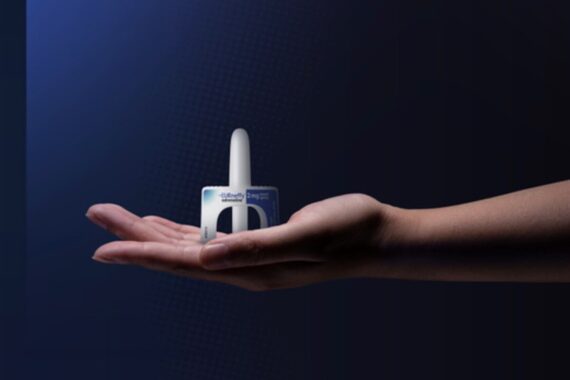Nasal spray alternative to anaphylaxis auto-injector approved for use in UK

UK medicines regulators have approved an adrenaline nasal spray to treat anaphylaxis.
The needle-free option can be used in adults and children weighing over 30kg, the Medicines and Healthcare products Regulatory Agency (MHRA) said.
Known as EURneffy, the epinephrine nasal spray delivers the full 2mg dose in one spray and can still be used if someone has a blocked nose due to a cold or allergy, the MHRA noted.
Patients at risk of anaphylaxis who are prescribed the medicine as an alternative to an auto-injector such as an EpiPen should always carry two of the nasal sprays with them in case a second dose is needed, the regulator added.
The manufacturer, ALK, confirmed to Pulse that they were in ongoing discussions to agree a price with the Department of Health and Social Care.
Patients are expected to be able to access the treatment in the second half of this year, a spokesperson said.
Julian Beach, MHRA interim executive director of healthcare quality and access, said: ‘Patient safety is our top priority, which is why we’re pleased to approve the first needle-free nasal spray formulation of adrenaline for the emergency treatment of anaphylaxis in the UK.
‘While this represents an important new option, adrenaline auto-injectors remain a vital and potentially life-saving treatment, giving people experiencing anaphylaxis valuable time before emergency help arrives.
‘We continue to encourage everyone at risk of severe allergic reactions, and those around them, to familiarise themselves with how to respond in an emergency.’
Surveys have shown almost half of patients do not regularly carry their auto-injector pens with them and 40% fail to administer them in an emergency.
Dr Helen Evans-Howells, a GP and chair of the Anaphylaxis UK Clinical and Scientific Panel, said rapid treatment for anaphylaxis was vital.
‘However, we continue to see persistent challenges within the community, with a large proportion of people with severe allergies, or their carers, not carrying or delaying use of an injectable adrenaline pen.
‘This markedly increases the risk of negative outcomes and the need for additional emergency medical treatment.
‘A nasal adrenaline spray addresses several critical barriers seen with the current standard of care, such as portability, fear, hesitancy to act and incorrect administration.’
Visit Pulse Reference for details on 140 symptoms, including easily searchable symptoms and categories, offering you a free platform to check symptoms and receive potential diagnoses during consultations.












